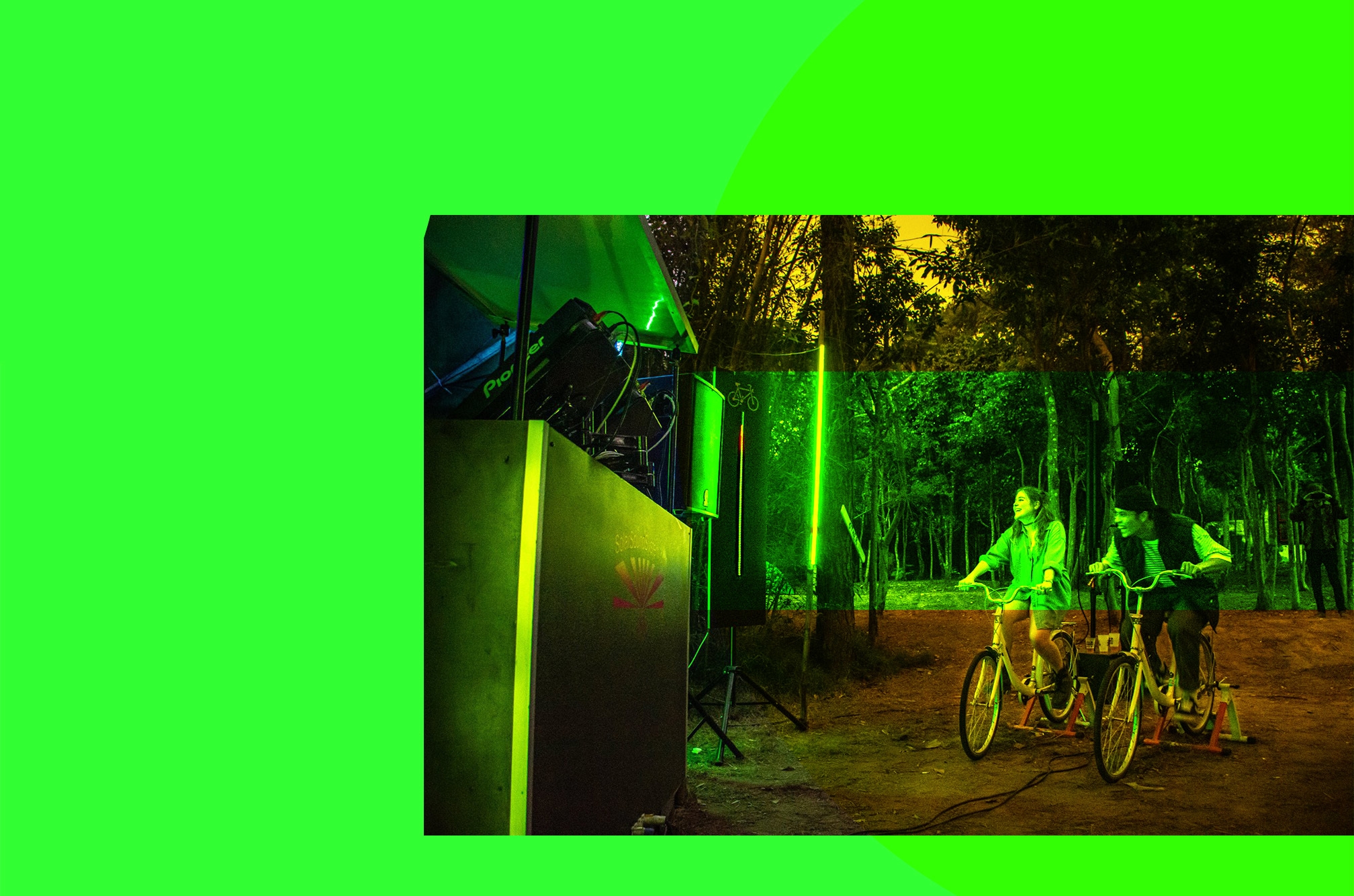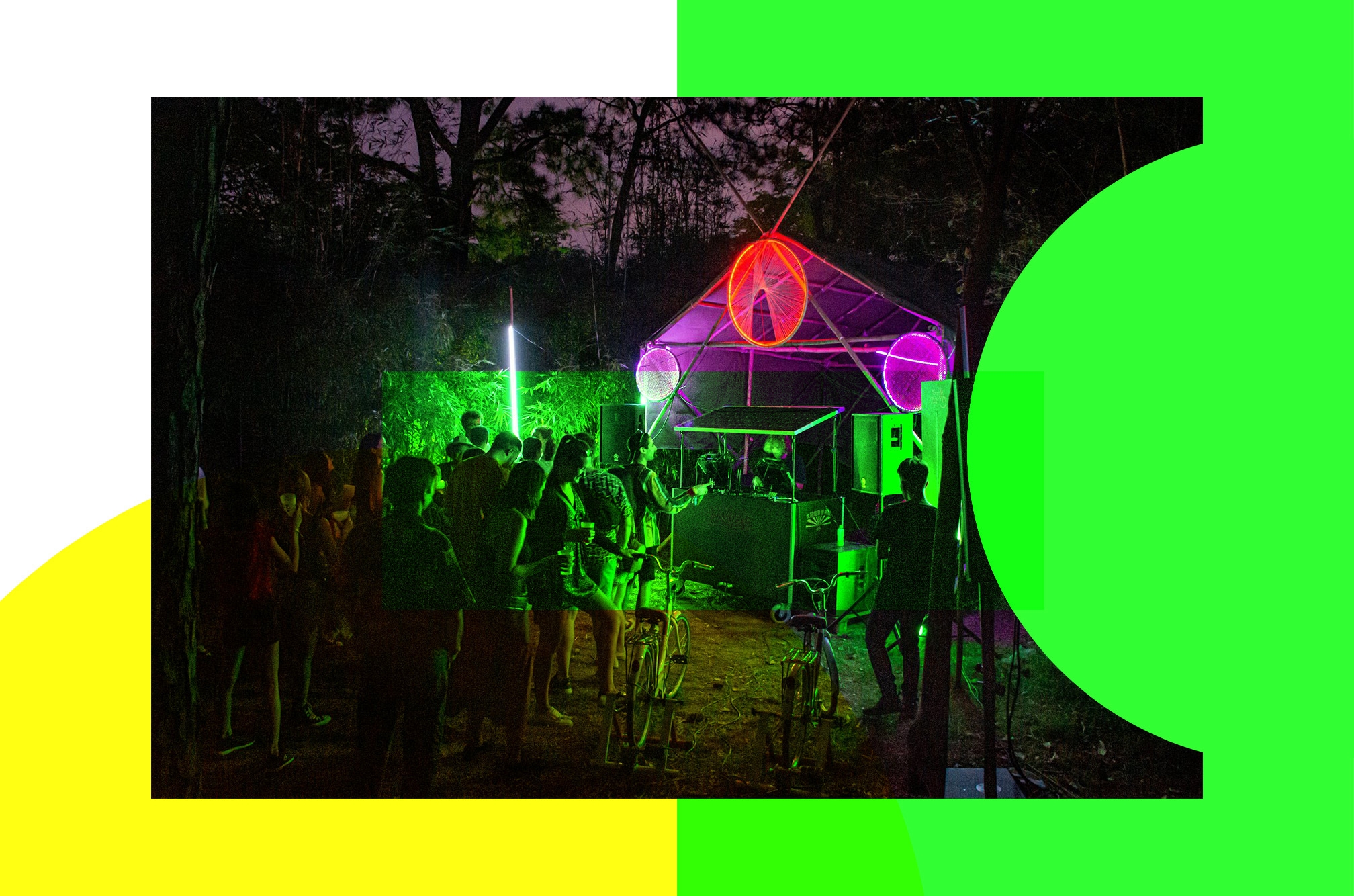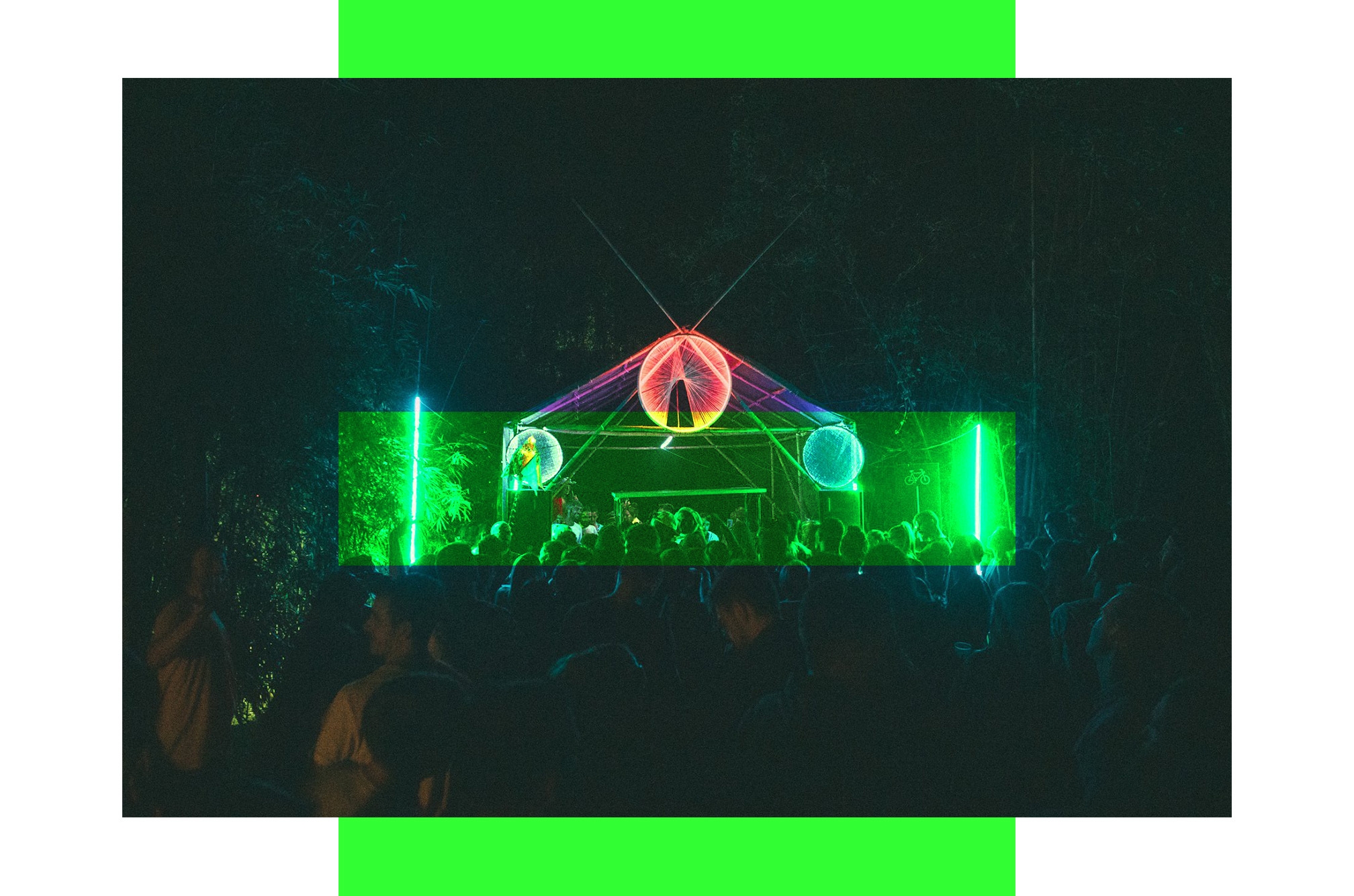 Green Room
Green Room
Good Vibrations: How Solar Sound System energises dance floors with the sun
Pedal your way to a cleaner and greener music festival
The future of the music industry was looking grim. From streaming music to manufacturing CDs and vinyl, the use of excessive amounts of electricity to power super clubs, the heaps of rubbish and single-use plastic left behind after events and festivals, and even the carbon footprint of travelling by plane and train to an increasing number of "idyllic" destination festivals — all unavoidable by-products of a really fucking good time — but also a huge environmental mess. And we're left scratching our heads wondering if this festival business is a dirty one to be in.
But, the well-being of the planet is increasingly becoming a top priority for conscious festivalgoers and the community is starting to take action in changing the trajectory it was on. From single-use plastic bans to stages built from sustainable materials and offsetting carbon, innovative solutions are slowly becoming…the norm. But there are a few people that didn't wait for the sustainable memo and got started a long time ago. Solar Sound System is one of them.
Enter Cédric Carles, a French-Swiss engineer who made the link between pollution and the music industry more than two decades ago. In 1999, he and a group of friends connected through their unconditional love for electronic music decided and set out to revolutionise their parties with a unique product: a sound system that could be disconnected from any power grid. A wild idea, but it worked. And his avant-garde idea survived and evolved (thanks amongst others to the Schneider Electric Foundation) into one of the industry's most innovative environmental solutions.

“Electricity is the second-biggest polluter in music events. To reduce it, we decided to offer sound solutions powered by the sun… and by attendees pedaling bicycles,” explains Aymeric Vollant, co-founder of the Solar Sound System branch in Hong Kong. His setup consists of a solar-powered DJ booth system, equipment, speakers, a pedal-powered system and an additional solar generator. And the installation is more than effective: it consumes 10 to 20% less electricity than any other standard sound solution.
Besides the lower consumption of electricity, the sound system also allows people to reconnect with nature — a missing element to outdoor events. The installation has since been carried out in the forests of Zurich, the parks of Paris, the Swiss Alps and the streets of Europe for community events. Thus, more than revolutionising the way we consume music, Solar Sound System revolutionises the way we party. And, honestly: what better way to raise awareness about climate change than actually changing the climate?
And people love it, even the pedalling. The innovative way of connecting with nature has taken over the world: in France, in Switzerland, in Germany, in Israel and now in Hong Kong — the concept is travelling to new continents. "What's so interesting about opening a branch in Asia, and especially in Hong Kong, is that there's a huge event market and a huge place for development," says Vollant. "Asia is working to become more sustainable. It is also a very dynamic region where ideas are always blooming. Thus, this kind of product seduces a lot: the concept is so easy to like."
As a matter of fact, the Solar Sound System is gaining traction in Hong Kong. Since its launch, the branch has participated in more than 50 events, including Sónar's SAR edition. "The use of our Solar Sound System at Sónar showed that not only were we helping the Hong Kong organisers reduce their carbon impact, but mostly showed that we were stimulating the attendees' curiosity," explained Vollant.

Solar Sound System isn't here to only fix their own events; stimulating curiosity is their second (and maybe most important) goal — they want to create a dialogue surrounding energy efficiency and climate change. "Even if they're supposed to party, to jump all around and to listen to music, people are still asking us a lot of questions. Why is the setup still working at night? Why is the setup still working during cloudy days? And we love to answer these questions."
Thus, the Solar Sound System cultural project is clear: bringing positive change and eco-responsibility to the music community. "Today's generation is facing important environmental challenges and has an important role in achieving the global transition towards a sustainable system," added Vollant. He believes that opening a discussion will change the behaviour of the attendees extremely fast. "It is difficult to check, but I believe we are changing the mentality of people, at least during the party. It is difficult to have someone in front of you, explaining to you how solar power can reduce the carbon impact, and throw your plastic cup on the floor."
Look out for Solar Sound System at events across Hong Kong, like Shi Fu Miz festival this October, and earn your right to party by pedalling. Or maybe you want to get involved and bring the initiative home? Connect with them here.


